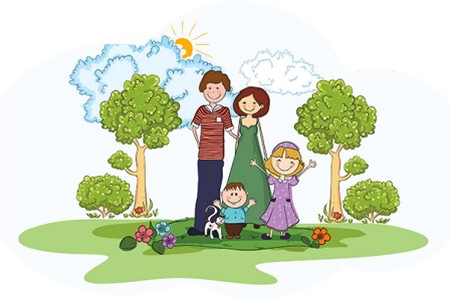Love, relationships
 Red: “Love and Relationship”
Red: “Love and Relationship”
“To live with love.” If you loved yourself, people, things, things – what would you feel? How would you behave, how did you look, react, relate? As with the desire of what result would you work at the Distance? For what, for whom would you master the exercises?
“Who is the navel of the earth?” With your attention, make life and other people, not yourself. Listening, immerse yourself in the soul, body and work of the interlocutor, live his life. Get used to looking at everything first of all from the point of view of the person who is right next to you, and only then – from your bell tower. Practice jumping, work into the state of the interlocutor.
“Always support” (mother model of love): get used to talking to people with all your heart is pleasant. Learn to understand their best intentions from people, to be always their support and never an obstacle. “I love you any!”.
“I will make a man out of you!” (Father model of love). Criteria for choosing your relatives, loved ones and friends? Who, how and why do you choose to love, what kind of solid results do you expect from it?
Live with love?
I love you!
Or maybe not?
The quotation from the text of exercises of red color reads:
“If you loved yourself, people, things, things — how would you feel? How would you behave, how did you look, react, relate?”
A person receives such an exercise text and then thinks how he could do this “If I Loved”. Or he starts to perform it, in passing, dealing with his soul, as well as the goals and meanings of this exercise.
According to prof. N. I. Kozlov in his book “A book for those who like to live, or the Psychology of personal growth,” “if you did this exercise, I would soon ask you the following questions:
How many people did you contact during the day? How many of them have you loved? What time is it specific? Why do you think you loved them? How do you define, how do you know that you love a person?
It is clear that one of the tasks of the exercise is to recognize this state, the state of love, to learn so clearly and clearly that later in controversial everyday situations there would be no disagreement: “you love or not.” And also that your love of people suited.
I love a man, but I resent his actions. Does it suit him? Does such love really need him (and life)?
Here is the family. A friend came to her husband, his wife barked, now her husband really wants to bite her. And if he loved her: what would he do?
Moreover, what would you like to do? How would you look at her, what would you feel about her if she loved her?
For her, her husband is a good person, but she is not interested in sex, and in the evening she is attracted more by the TV than by the bed with him. And if she loved him?
There is no unequivocal answer, especially since the exercise proposes to remember about self-love. But the exercise suggests about all this – to think.
Or: your child believes that the briefcase is very similar to a soccer ball, and a sideboard with porcelain is a gate, and is about to shoot a penalty. Having defended the porcelain, you would like to give him on the head with his portfolio so that he would begin to think. And if you loved him? And if you also loved the order at the same time?
Etc. – life is generous to such questions. If she was just as generous with the answers!
Is your love just a kind (caring, responsible) attitude to – or something more? Is there a sense of community, the desire for intimacy? Is there a feeling: “dear, my, hearty?”, Lively quivering perception of him, living and quivering?
What does your love mean? What is the meaning of it – you? to the one you love to business? Things you show love to?
If you love everything and everyone – are you now living in a world filled with love? In the beloved world? How do you live in such a world now?
Questions for philosophizing researchers: if you love everything and everyone – the amount of love for everyone in accordance with the law of conservation of energy has become less? Or is your love such that the more you love everyone, the cleaner and richer is your love for everyone?
And the question is absolutely harmful: if you love everything and everyone – all things become equal for you in importance? Love anyway whom?
About self-love: can you say that you love yourself? Do you want to love yourself more or differently? How do you react to your mistakes? Do you often praise yourself? How do you support yourself in difficult situations? What kind of gifts are you ready to give yourself to be glad heartily?
In your love is more maternal (forgiving and unconditionally accepting) or demanding-fatherly relationship?
When you woke up, but you didn’t get enough sleep, loving yourself according to the mother model is happy to give yourself another half an hour by eye. Love for yourself on the father’s model: lifting, douche, ice douche, charging – and go!
Good exercise, by God! ”
Criterion surrender exercises Love to your loved one
For women, these are things: do, talk, behave in such a way that a loved one says: “Yes, she loves me, and does it the way I need!”For men, these are feelings: it doesn’t matter what you do, but a loved one should have a feeling: “Yes, I believe, you really love me!”
Interesting statistics
Do you know that in a month on the search engine yandex.ru more than 200,000 people ask about the psychology of love?




